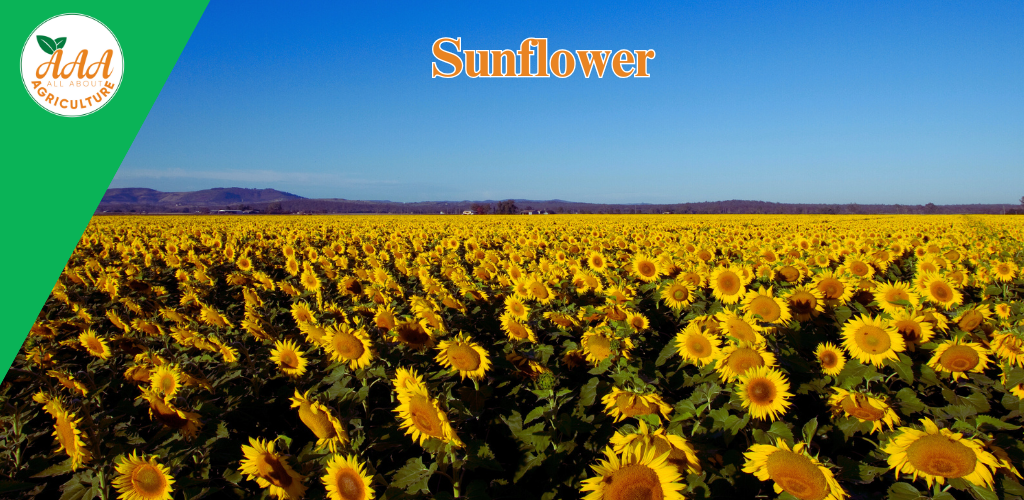Sunflower Production Technology
Sunflower Production Technology

Sunflower (Helianthus annuus) is a high-yielding, oil-rich crop known for its drought tolerance, quick growth, and premium market value. With modern farming techniques and scientific management, farmers can achieve higher productivity, superior oil quality, and sustainable profits.
Key Steps for Profitable Sunflower Cultivation
Ideal Climate & Soil Conditions
Temperature: 20-30°C – Requires warm weather & plenty of sunlight
Soil Type: Well-drained loamy to sandy loam soil (pH 6.5-7.5)
Water Requirement: Moderate irrigation, crucial at flowering & seed filling stages
High-Yielding Sunflower Varieties
Popular hybrids: KBSH 44, DRSH 1, PSFH 118, Morden
High oil-content varieties: PAC 3794, SH 3322 – Ideal for edible oil production
Disease-resistant types: CO 4, TCSH 1 – Suitable for regions with disease risks
Smart Sowing & Seed Treatment
Seed rate: 6-8 kg/ha for hybrids, 10-12 kg/ha for open-pollinated varieties
Best sowing time:
- Kharif (Monsoon crop): June-July
- Rabi (Winter crop): October-November
- Zaid (Summer crop): January-February
Seed treatment: Treat with Trichoderma & PSB (Phosphate Solubilizing Bacteria) to boost germination & disease resistance
Nutrient & Water Management
Balanced fertilization:
- Nitrogen (N): 60-80 kg/ha
- Phosphorus (P): 40-50 kg/ha
- Potassium (K): 30-40 kg/ha
Irrigation schedule: Key stages – Flowering & grain filling
Weed, Pest & Disease Control
Weed management: Use Pendimethalin (pre-emergence herbicide) to keep fields weed-free
Common pests: Helicoverpa, jassids, whiteflies – Managed using Neem-based bio-pesticides
Disease control: Rust, Downy mildew, Alternaria blight – Prevent with crop rotation & fungicides
Harvesting & Post-Harvest Management
Harvest when flower heads turn yellow-brown & moisture content drops below 10%
Proper drying ensures higher oil extraction & better market price
Average yield: 1.5-2.5 tons per hectare.